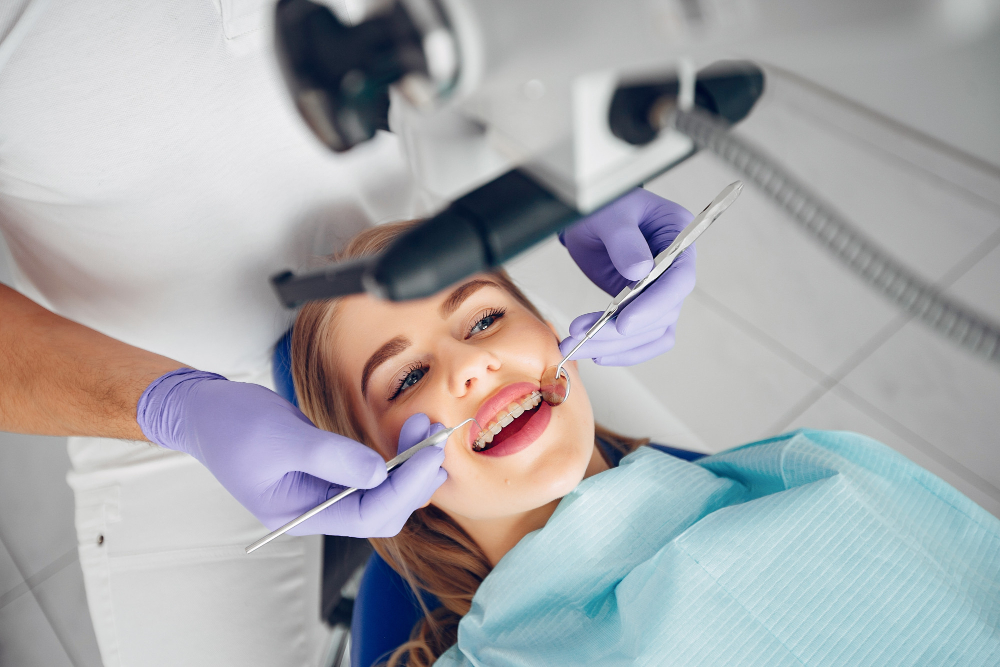Introduction
Maintaining good oral hygiene goes beyond just brushing and flossing daily; it involves regular visits to the dentist. While many people are more prone to delay or overlook dental appointments, these routine visits are vital for overall health. Here are seven reasons why scheduling regular checkups with your dentist is crucial.
Why Should You Visit a Dentist Regularly?
There are several reasons why you need to visit a dentistry dubai regularly. Here’s what you need to know about it.
1. Prevention Is Key
Regular dental appointments function as a preventive strategy against numerous oral health concerns. Professional cleanings eliminate plaque, tartar, and bacteria buildup that everyday brushing might overlook. This cleaning substantially decreases the likelihood of encountering cavities, gum disease, and similar dental issues. Detecting problems like cavities or gum disease early during routine checkups enables prompt action, avoiding the necessity for more invasive and expensive treatments later on.
2. Oral Cancer Screening
Most dentists are taught to detect early signs of oral cancer, a potentially life-threatening condition. During routine checkups, they perform screenings to identify any abnormalities or suspicious signs in your mouth, neck, and tongue. Detecting oral cancer in its initial stages greatly increases the chances of successful treatment. Regular dental visits play a crucial role in early detection and prompt management of this serious condition.
3. Maintaining Gum Health
Gum disease, if left untreated, can lead to serious complications, including tooth loss and even systemic health issues like heart disease. Regular dental checkups involve thorough examinations of your gums. Early signs of gum disease such as gingivitis can be identified and treated effectively. Your dentist can provide guidance on proper oral hygiene practices to prevent gum disease from progressing.
4. Addressing Bad Habits
Certain habits like nail-biting, teeth grinding (bruxism), or using teeth as tools can harm your oral health. During dental checkups, your dentist can identify signs of these habits and provide guidance on how to curb or manage them effectively. Left unaddressed, these habits can lead to tooth damage, jaw pain, and other dental complications.
5. Maintaining Overall Health
Research indicates a significant correlation between oral health and general well-being. Inadequate oral hygiene has been linked to systemic issues like diabetes, heart problems, and respiratory ailments. Regular dental check-ups not only promote good oral hygiene but also support overall health. Keeping your mouth healthy can have a positive effect on your body’s well-being and decrease the likelihood of specific health conditions emerging.
6. Personalized Oral Care Guidance
Each individual has unique oral health needs.
Dentists can provide personalized guidance based on your specific concerns, whether it’s about proper brushing or flossing techniques, choosing the right dental products or addressing specific dental issues. These tailored recommendations can significantly improve your oral hygiene routine and overall dental health.
7. Preserving Your Smile
A healthy smile boosts confidence and contributes to a positive self-image.
Regular dental checkups help preserve your smile by addressing any dental issues promptly. Preventive care ensures that your teeth remain healthy and free from decay, discoloration, or other aesthetic concerns.
Your dentist can also offer cosmetic treatments to enhance the appearance of your smile, such as teeth whitening or orthodontic options.
How to Find a Good Dentist?
A smile is a universal language, and ensuring your oral health is in capable hands is crucial. Finding the right dentist goes beyond a simple online search.
It involves evaluating expertise, comfort, convenience, and more. Here’s a step-by-step guide to finding a dentist who meets your needs and ensures a healthy smile.
1. Referrals and Recommendations
Begin your search by seeking recommendations from friends, family, or colleagues.
Personal experiences can provide invaluable insights into a dentist’s demeanor, expertise, and the overall experience.
2. Research and Credentials
Once you’ve gathered recommendations, delve deeper into the dentist’s credentials.
Check their education, certifications, and affiliations with professional dental organizations. I’d also ask you to remember that state dental boards can also provide information about any disciplinary actions against the dentist.
3. Accessibility and Location
Consider the location of the dental office and its accessibility.
A conveniently located practice that fits into your schedule can encourage regular visits and make emergencies easier to handle.
4. Services Offered
Different dentists specialize in various fields, such as orthodontics, pediatric dentistry, or cosmetic dentistry. Assess whether the dentist offers the services you require or anticipate needing in the future.
5. Technology and Techniques
A good dentist stays updated with the latest technology and techniques in the dental field.
Inquire about the equipment used in the practice and the procedures they offer. Modern equipment often means more accurate diagnostics and more comfortable treatments.
6. Comfort and Atmosphere
The atmosphere of the dental office plays a significant role in easing anxiety.
Visit the office beforehand to gauge its ambiance. A welcoming environment with friendly staff can alleviate dental fears and make the experience more pleasant.
7. Patient Reviews and Testimonials
Online reviews and testimonials from previous patients provide firsthand experiences.
While individual reviews can be subjective, patterns of positive or negative feedback can give you a sense of the dentist’s reliability.
8. Consultation Visit
Arrange a consultation appointment with the dentist.
Use this opportunity to discuss your dental concerns, ask questions about their approach to treatments, and assess how comfortable you feel with them.
9. Emergency Care Availability
Emergencies don’t follow a schedule.
Inquire about the dentist’s policies for handling dental emergencies outside of regular hours. A reliable dentist should have provisions for urgent cases.
10. Cost and Insurance
Understand the costs associated with different treatments and whether the dentist accepts your dental insurance. Transparency about fees and payment plans can help you plan your dental care without financial stress.
11. Trust Your Instincts
Ultimately, trust your instincts.
If something doesn’t feel right or you’re uncomfortable, it’s okay to seek another dentist. A good relationship with your dentist is built on trust and communication.

